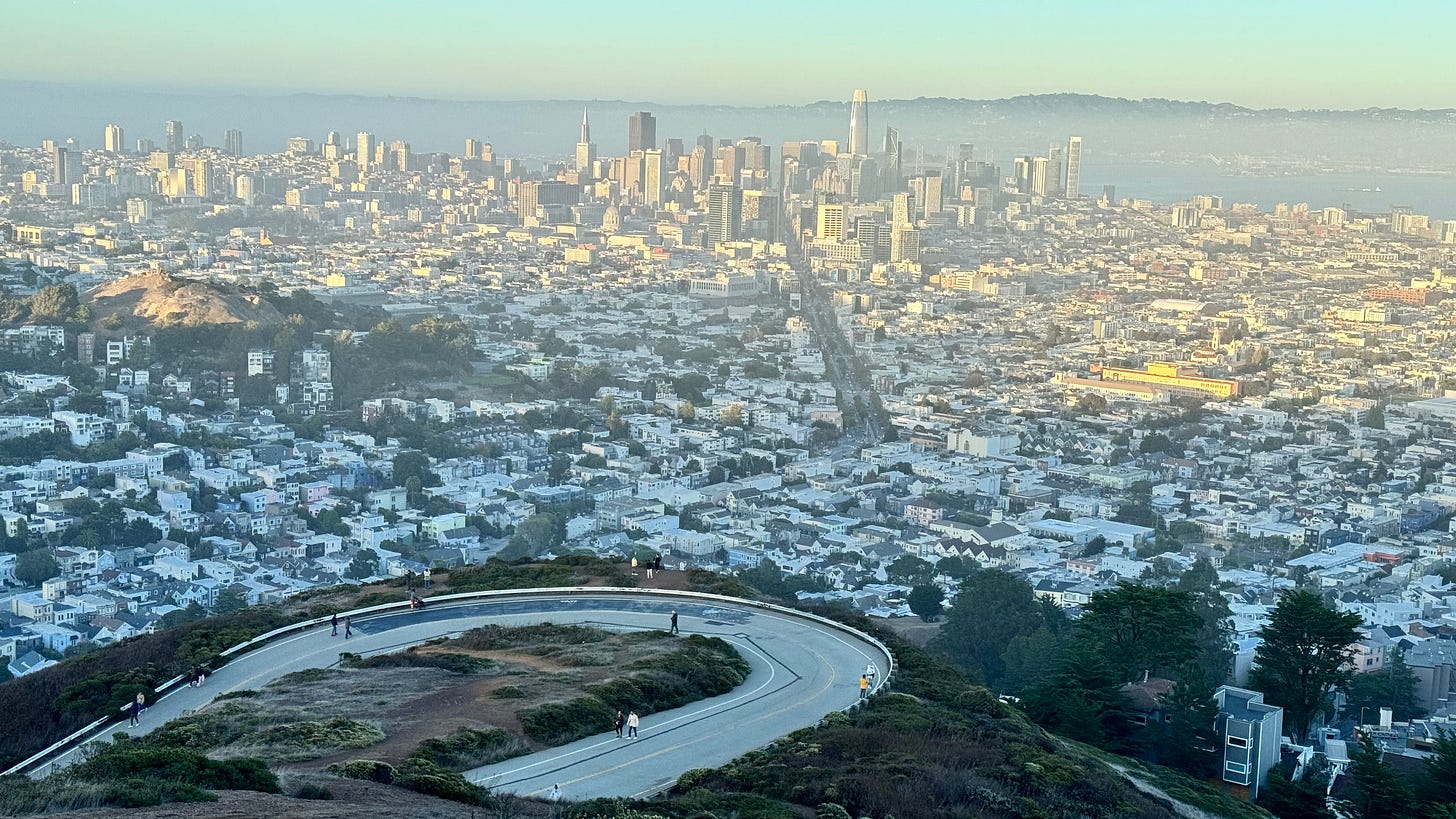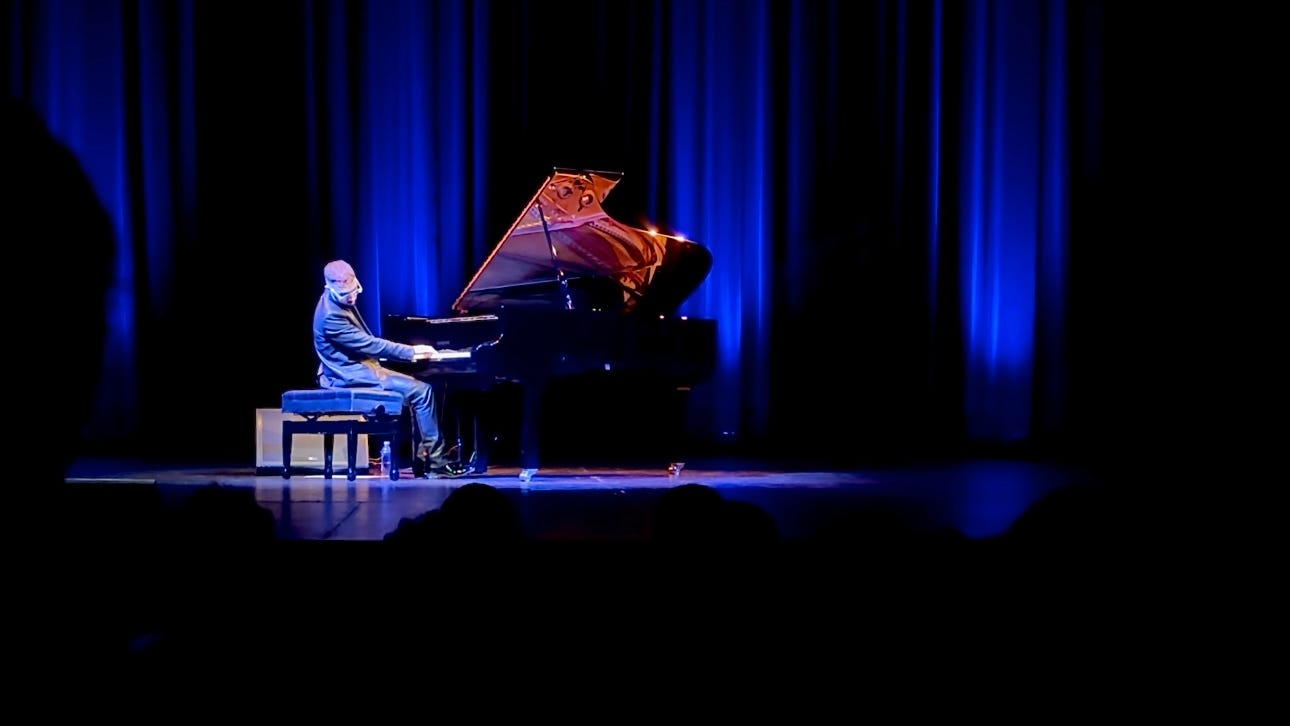Before a long ride, remember to:
Check your tires
Adjust your seat
Put on your helmet
Fill up your water bottle
Pack light
It’s a balance: enough supplies for the journey, but not enough to slow you down.
Chart your route. Expect detours. Trust that you’ll find your way.
My mum is a cyclist. She loves the open road, the unfettered freedom, the sweat and triumph along the way. Cycling is one of the few active hobbies she managed to cultivate in me. Back then, I accepted it as exercise and (Type 2) fun. These days, I realize it also taught me plenty. As I think about starting a family of my own, here are three lessons from the road I hope to pass on to my kids some day:
I. Getting Unstuck
The fastest way to get unstuck is to live honestly.
Confronting lies has helped surface the inconsistencies I’ve allowed crop up and multiply in my life. Dishonesty is self-inflicted pain. Ambiguity is a soft form of dishonesty. Languishing in ambiguity prevents me from correcting course, and enables me to avoid an uncomfortable truth I’ll need to confront down the road. When I’m dishonest, I trade short-term discomfort for long-term problems.
For example, I started college thinking I’d become an English as a Second Language (ESL) teacher or social entrepreneur. I spent senior fall waffling between Teach For America (TFA) in who-knows-where and Mergers & Acquisitions (M&A) in New York. I came out an investment banker. Having traced the issue to its root cause, I can now pinpoint exactly when I started to diverge from my values, which occurred years before I was mumbling to myself in Midtown East: “How did I get here?”
Each compromise took me slightly off-course:
The frenzy of on-campus recruiting (“OCR”) that had me borrowing my hallmate’s Brooks Brothers suit and memorizing Enterprise Value and Free Cash Flow formulas when I’d never seen a balance sheet before in my life.
The allure of being invited to a colleague’s yacht at a Boston-based asset manager; I got motion-sick and hid in the bathroom to throw up while praying the whole affair would be cut short so I could return to being a land mammal.
The prestige of a private equity internship where I watched a Managing Partner yell at a fellow intern about inconsistent stapling on client-facing decks; we were forced to watch as he pried out each sub-standard staple with his bare hands.
I left finance not because it wasn’t a great career, but because it wasn’t my career.1
II. Living a Principled Life
We’re all on a journey to move towards what matters.
We’re all on a journey to make an impact, navigate difficult decisions, learn about ourselves, articulate a personal aesthetic, make sense of our place in the world, and how we wish to contribute to it. The best way to prepare for that is to develop the mental curiosity that we carry with us as we navigate questions with no clear answers, and the emotional flexibility to stay open to a variety of experiences—embracing that the journey is where we learn rather than prove what we know.
A principled life requires a North Star and a compass: knowing what we stand for and letting our values guide each turn. When navigating by starlight, check course often.
From Lying by Sam Harris:
How would your relationships change if you resolved never to lie again? How might you change the people around you? Are you in an abusive relationship? A refusal to lie to others—How did you get that bruise?—might oblige you to come to grips with this situation very quickly. Do you have a problem with drugs or alcohol? Lying is the lifeblood of addiction. Without recourse to lies, our lives can unravel only so far without others’ noticing.”
The best framework I’ve found for navigation is the following:
Figure out what you value. This is a pre-requisite to doing anything. What are you doing to get closer to that? What are you willing to trade off for those values? If you’re passing time, have you time-boxed it to avoid a creeping non-choice?
Feel your feelings. Stay internally curious. Use emotions as data. Accept what comes up. Detect drift and recommit.
Speak openly. Don’t withhold, don’t withdraw. Approach conflict or disagreement as opportunities to deepen connection and understanding.
Do what you say you’re going to do. Honor your agreements. Be precise. Clear is kind. Don’t hide in the safety of ambiguity; lies of omission are acts of cowardice.
What would you add to this list?
III. Building Trust-Based Relationships
It's the littlest things that say everything we need to know.
Relationships are about pacing, sharing the the road, and staying in-sync along the way. It’s never the grand gestures but the little things that tell us everything we need to know about someone's character, their trustworthiness, whether we feel cared for and safe in their presence. Or better yet, their absence.
A few conversational habits that come to mind:
“How are you today?” when asked with warm eyes and a sincere smile is a perfectly fine conversation starter. “Is there more?” suggests safety to share.
Share the road. Learn to have high-stakes conversations in low-stakes ways to diffuse conflict and establish common ground. The world needs more of this skill.
Choose your climbs. “On a scale from 1 to 10, how much does this matter to you? You can’t say 7” in a disagreement can clarify which clashes are worth the calories.
Don’t trespass. Go where you’re invited. Before offering unsolicited advice, ask: “What role would you like me to play?” Sometimes it’s just a riding buddy.
Last weekend, I was at a potluck among friends of the better half of two decades. We marveled at our friend’s custom quartzite countertops (including personally installed backlighting to bring out the rock’s translucency—controlled by app or switch, on a dimmer), panoramic views of the Bay from the backyard, and everyone’s ability to cook real adult food now: A5 wagyu from Japan! No store-bought chips or DoorDash!
But most of all, we marveled at the three young kids who ran around all night, playing and poking around and negotiating boundaries and learning to share all evening.
And really, isn’t that what we’re all striving for?
A life of our own, informed by curiosity and compassion.
That’s the legacy I hope to leave my kids: not a map, but a compass. Our task isn’t to carve out the universe, flatten obstacles, or ride their races for them, but to teach them the skills to one day discern their own North Stars, navigate by starlight, and stay true to the journey they choose for themselves.
Credits to my first post-grad employer for taking a chance on a bunch of liberal arts kids, shipping us to a remote conference center in Chicago for one month of finance training, and instilling in us a fear of God so we all (miraculously) passed our FINRA broker exams when we emerged from the woods. The experience entirely cured my desire for a “prestigious” career. And for that, I’m still grateful.





